
Emergency Response Rooms
Sudan
Melden Sie sich gern für Interviewanfragen und weitere Informationen.
Awarded
Emergency Response Rooms
„Weil sie inmitten von Krieg und Staatszerfall gemeinschaftliche Nothilfe für die würdevolle Versorgung von Millionen von Menschen aufbauen.“
Emergency Response Rooms (ERRs) bilden ein basisnahes, gemeinschaftsgeleitetes Netzwerk im Sudan. Inmitten von Krieg, Vertreibung und Staatszerfall sind die ERRs zum Rückgrat der humanitären Hilfe des Landes geworden. Sie knüpfen an lokale Traditionen gegenseitiger Hilfe an und sind mit Nothilfeanlaufstellen in allen 18 Bundesstaaten des Sudan aktiv. Wo viele internationale Organisationen oft nicht mehr hinkommen, leisten die ERRs medizinische Versorgung, verteilen Lebensmittel, bieten Bildung, Schutz und psychosoziale Unterstützung. Diese Arbeit erreicht Millionen Menschen und steht für ein Modell dekolonialisierter humanitärer Hilfe, das Würde und Gestaltungsmacht wieder in die Hände lokaler Gemeinschaften legt.
Die ERRs entstanden aus den nachbarschaftlichen Widerstandskomitees, die 2019 eine Schlüsselrolle in der sudanesischen Revolution spielten. Während der COVID-19-Pandemie organisierten sie erstmals Gemeinschaftsküchen und Gesundheitsdienste.
Als im April 2023 der Krieg begann, verschärfte sich die ohnehin schwere humanitäre Krise im Sudan zur größten der Welt. Die ERRs weiteten ihre Arbeit aus, um die Lücken zu schließen, die der Kollaps der Wirtschaft und der staatlichen Institutionen hinterlassen hatte. Die fast 10.000 Freiwilligender ERRs bieten Zivilist*innen Schutz, betreiben Krankenhäuser und unterstützen Überlebende sexualisierter Gewalt.
Die Arbeit der ERRs ist mit großem persönlichem Risiko verbunden: Mitglieder wurden aufgrund ihres Engagements für Zivilist*innen festgenommen, gefoltert und getötet. Doch das dezentralisierte, ehrenamtlich getragene Modell hat sich als widerstandsfähig, effizient und in den Gemeinschaften als vertrauenswürdig erwiesen. Neben lebensrettender Hilfe schaffen ERRs eine Kultur des Mitgefühls und der Solidarität und legen so die Grundlage für eine zukünftige Zivilgesellschaft und demokratische Erneuerung im Sudan.
The spirit of resistance has evolved into local governance and inclusive participation. And when the war ends, we will evolve again, because this is a marathon, not a sprint.
Alsanosi Adam, External Communications Officer
Biographie (auf Englisch)
Emergency Response Rooms (ERRs) are a Sudanese grassroots network that delivers life-saving humanitarian assistance where state institutions have collapsed and international responses have fallen short. By centring dignity, mutual aid and community leadership, ERRs have not only sustained millions through crisis but also fostered a culture of solidarity that strengthens the foundations for Sudan’s future peace and democracy.
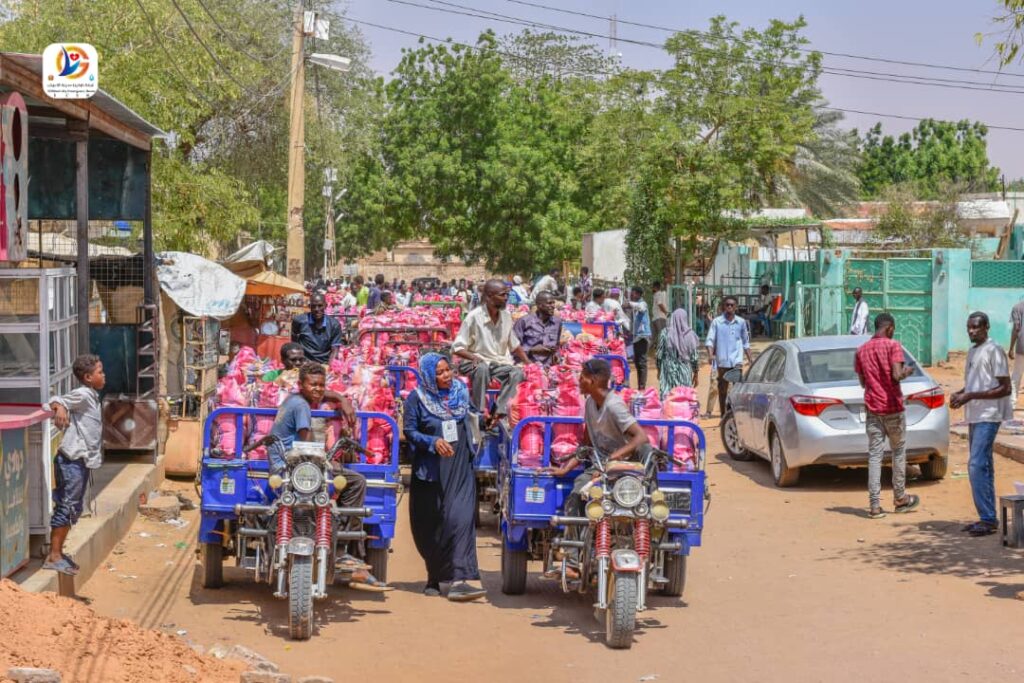
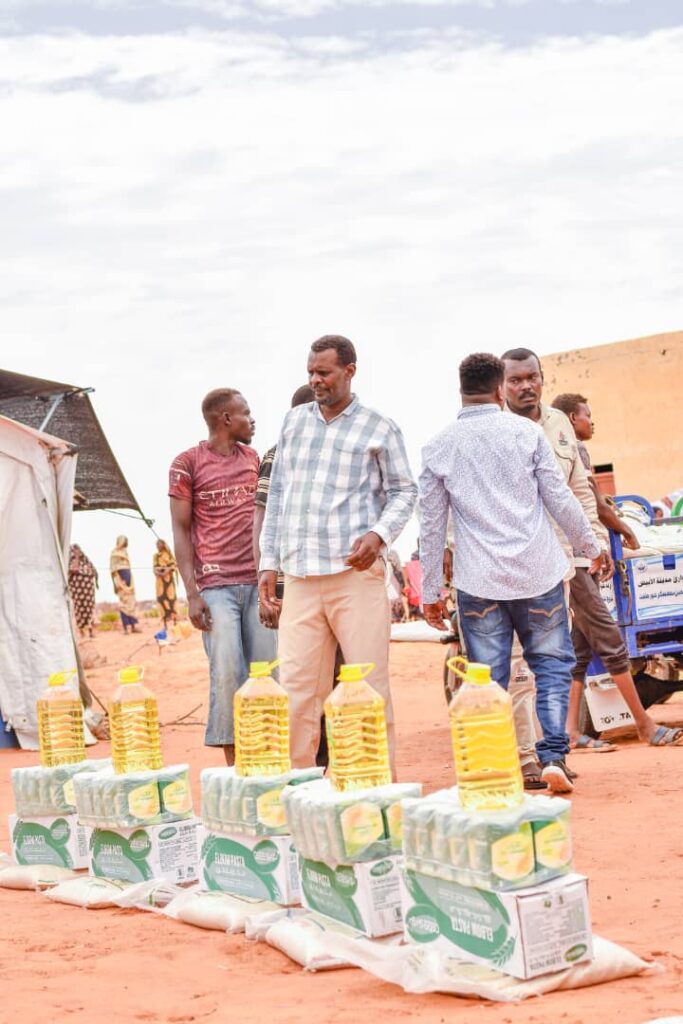
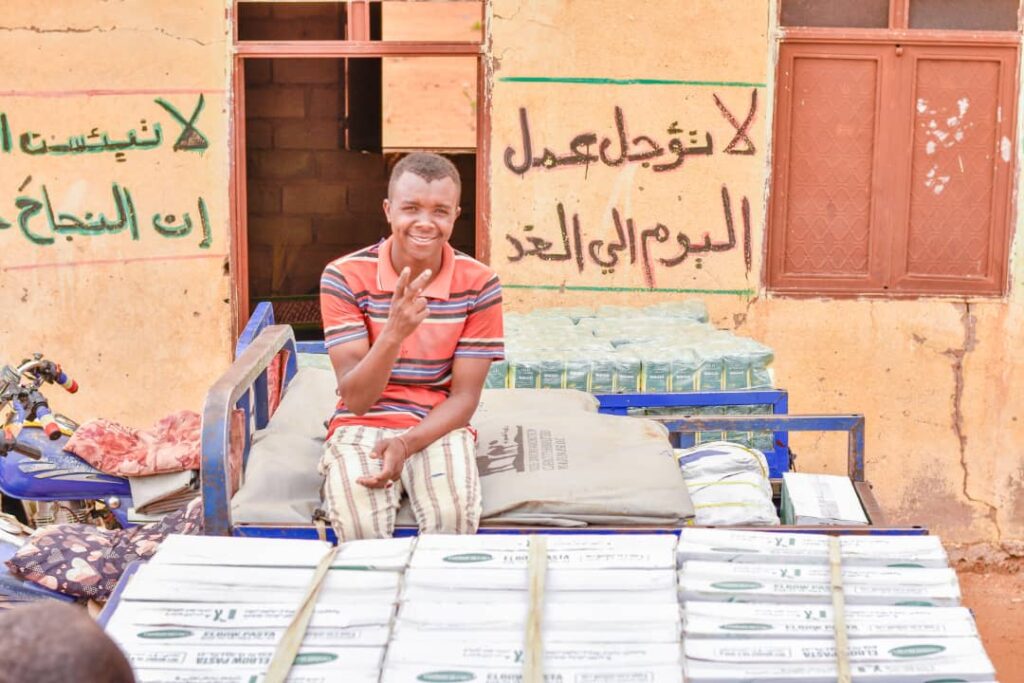
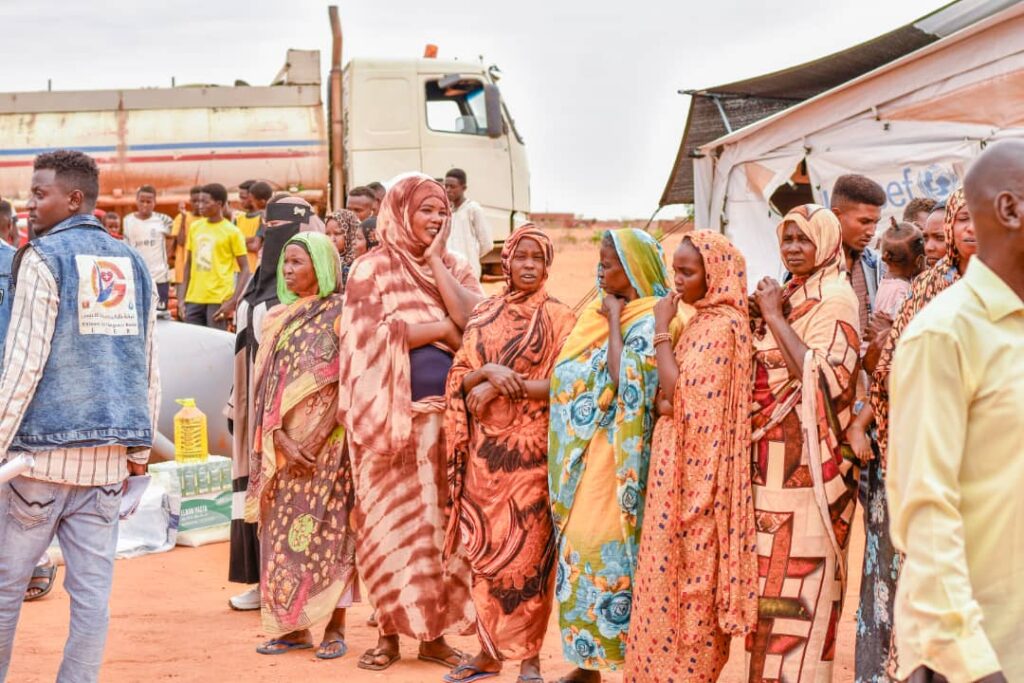
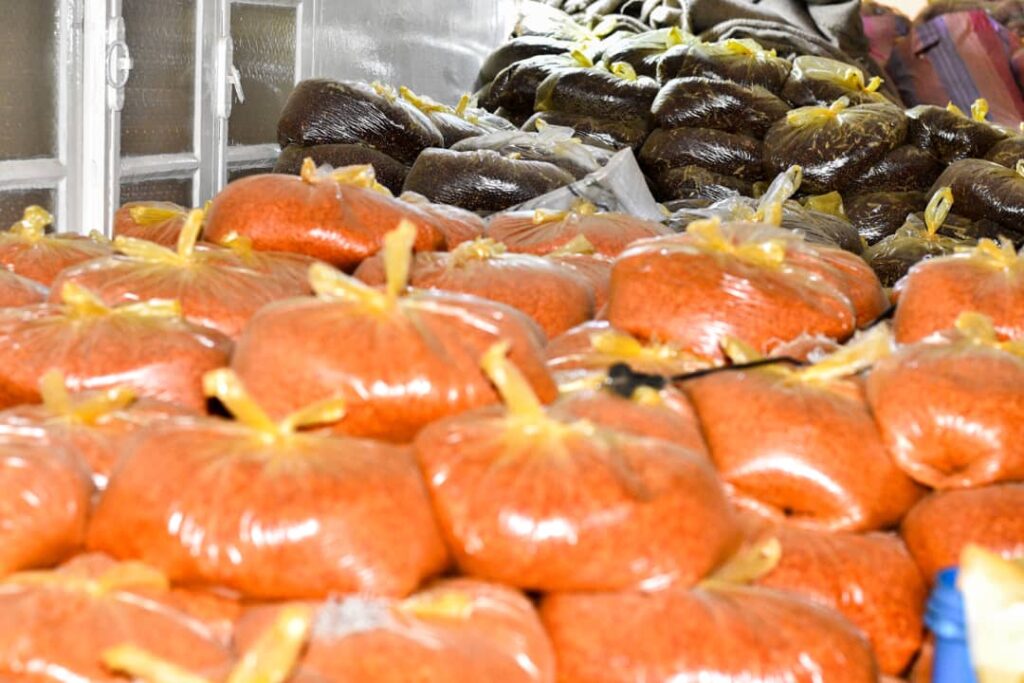
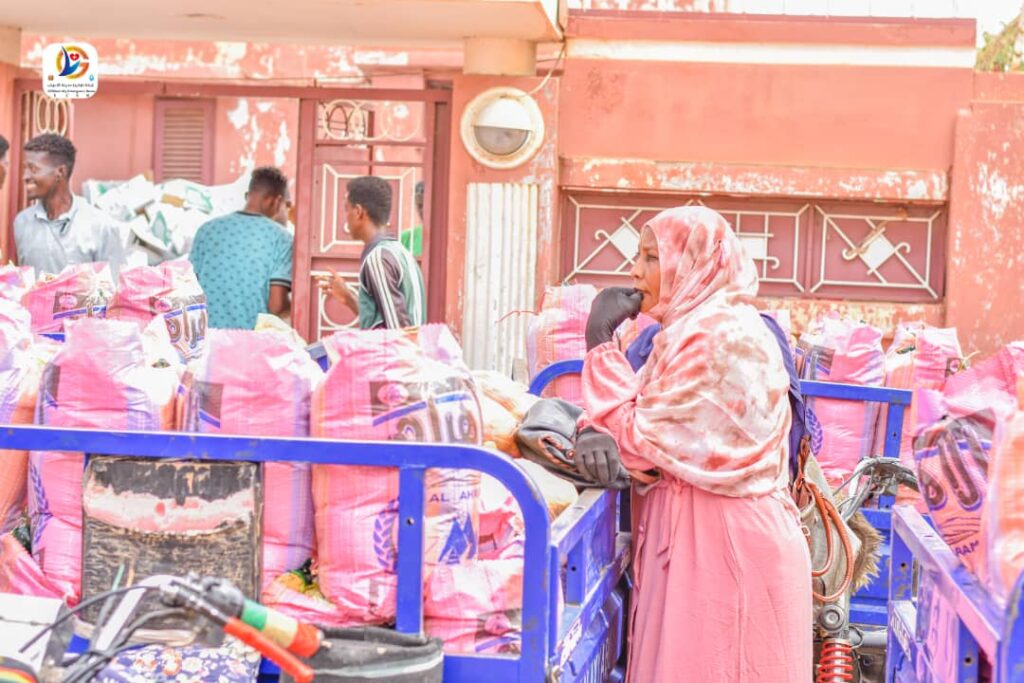
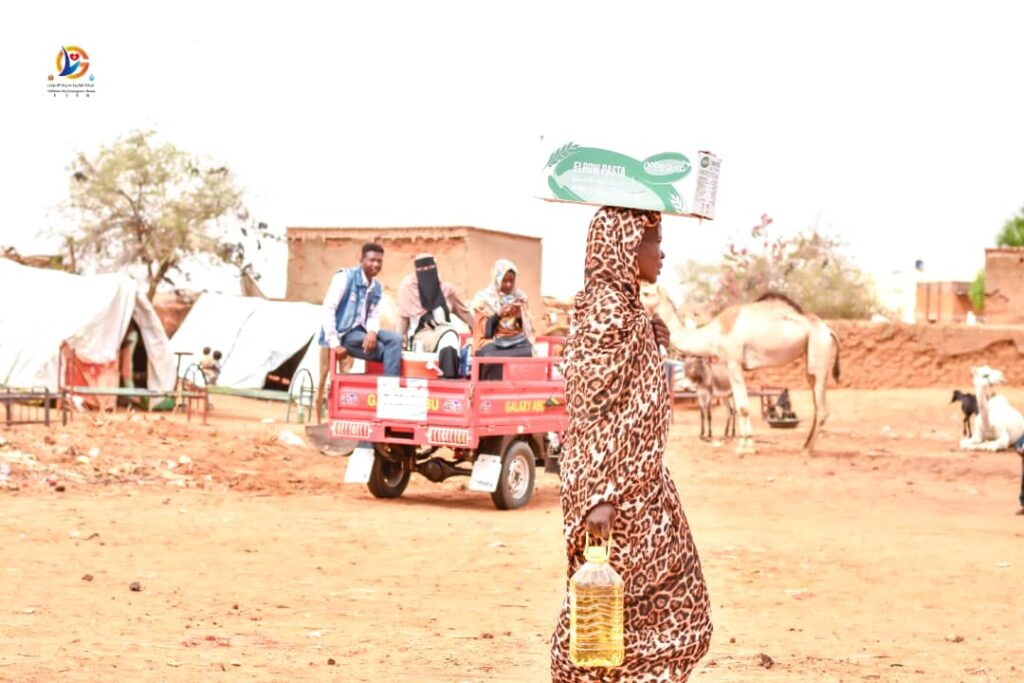
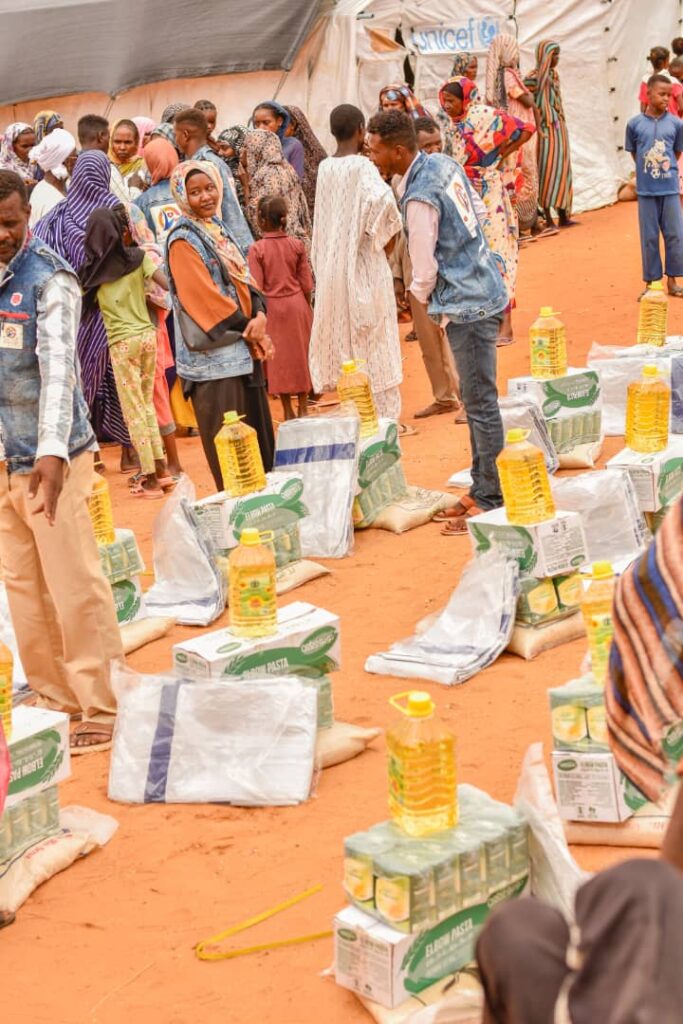







A lifeline in the world’s greatest humanitarian crisis
Since gaining independence in 1956, Sudan has endured coups, military rule, civil wars and genocide. The 2019 revolution ousted Omar al-Bashir and briefly raised hopes for democracy through a power-sharing deal between the military and civilian leaders, but a 2021 military takeover ended the transition. By April 2023, rival military factions plunged the country into war, unleashing the world’s largest humanitarian crisis: over 30 million people need humanitarian assistance, 12 million have been displaced and 2 million are facing famine as of July 2025.
Two years into the war, vast areas of the country remain unreachable as fighting continues to destroy public infrastructure, limiting access to clean water, healthcare and food. In this context, Emergency Response Rooms (ERRs) have become the primary lifeline for communities across all 18 Sudanese states. Operating under constant threat from both warring parties, ERRs deliver health services, food aid, education, protection for civilians, psychosocial support and evacuation assistance.
From resistance committees to Emergency Response Rooms
ERRs are an evolution of Resistance Committees (RCs), grassroots neighbourhood networks that began organising civil disobedience in 2013 and played a key role in the 2019 revolution. While RCs were inherently political, the widespread suffering caused by the COVID-19 pandemic and war compelled the movement to embrace a neutral humanitarian approach.
“RC was the backbone of the resistance. With the ERRs, we are doing what we couldn’t do with the RCs because ERRs are not political,” said Yan Elobaid, Fundraising Officer.
ERRs build on Sudan’s tradition of nafeer — an informal, community-driven mobilisation in which people pool resources, such as cash or labour, to help those in need. Honouring this ethos, ERRs have created a solidarity economy in which communities identify needs, set priorities and act on them together. The movement’s 10,000 volunteers include everyone from farmers and bankers to engineers, teachers and healthcare workers.
“We are trying to keep the spirit of volunteerism, the spirit of being your brother’s keeper and your sister’s keeper and your neighbourhood’s backbone,” said Alsanosi Adam, External Communications Officer.
Leading a decolonised humanitarian model
The movement operates as a multi-level, decentralised network of 737 neighbourhood or “base” ERRs across Sudan’s 18 states. Community members elect base representatives, who join district committees that then elect state-level councils. These committees elect officers from within their ranks to coordinate logistics like finances, programming and data collection across the entire state. More recently, the Localisation Coordination Council (LCC) was established as a national body that brings together state ERRs, local organisations and international NGOs to maximise the impact of funding across Sudan.
“Here we have disrupted the system. A lot of organisations are not okay with it, [they say] there is a way to do this humanitarian thing and to them, that is donor to consortium, consortium to INGOs, INGOs to local NGOs. And then after that, it trickles down to mutual aid. We flipped that,” said Adam.
ERRs’ model of “decolonised” aid goes beyond charity, giving communities the power to define their own priorities. Largely funded by the Sudanese diaspora and some international donors, ERRs reduce dependency on slow-moving and bureaucratic aid so that communities can quickly meet their own needs.
“One dollar donated is one dollar spent. There are no percentages for operations. Nobody gets a salary. You get all the money sent to the ground, and then we move on running, looking for more money,” said Adam.
By drawing on their own capacities and decentralising decision-making, ERRs reach communities inaccessible to international aid organisations, achieving an efficiency and effectiveness that they cannot match.
Women’s solidarity and leadership
ERRs strengthen women’s participation through Women’s Response Rooms, an umbrella term for the movement’s women-led activities. One of the Women’s Response Rooms‘ first initiatives was co-ops, informal spaces where 15-20 women gather for psychosocial support, protection and solidarity.
In the spirit of Sudanese soondooqs—community savings boxes where women pool money and meet monthly to decide how to use it—the co-ops grew naturally from female ERRs members’ need for a safe space to talk about how the war was affecting them.
“When we came together to cook in the soup kitchen, we discussed politics, the war, the violence, sexual abuse, and the future of our children, but the time was never enough,” said Duaa Tariq, member of the Jereif Gharib ERR.
Tariq explained that within just three months of launching the first two co-ops, her base ERR has grown to host 19 co-ops serving hundreds of local women. These co-ops are now evolving beyond psychosocial support to include income-generating initiatives, such as women-led grocery stores.
In states like Khartoum and Al Jazeera, where the war is most intense and international organisations are absent, ERRs further support women by leading the response to conflict-related sexual violence. In addition to providing medical care, psychosocial support and safe spaces for healing, ERRs document cases and coordinate relocations for those in danger.
Preserving dignity amid state collapse
ERRs prioritise healthcare, education, food assistance and evacuations in their response, using creative solutions designed to save lives and meet realities on the ground.
“If a doctor is sitting under a tree serving 50-something villagers, how are you going to help him? Oh, you want him to have an operation room and electricity? He doesn’t have that. You help that doctor by providing him with what he needs to help him save a life,” said Adam.
Some of ERRs’ most practical healthcare solutions include buying an entire pharmacy so people could access medicines for free, sending dialysis machines for repair across borders, and restoring hospitals by cleaning facilities and installing solar systems.
The same community-based approach is evident in food assistance. Primarily in place to provide meals, communal kitchens have also become informal classrooms where children can learn from adults as they prepare food for the community. Building on this, ERRs have piloted a tablet-based curriculum in two states that it intends to take nationwide, aiming to prevent a lost generation.
“If this war continues for ten or 20 years, what will happen? These kids are going to be the fuel for that war. The thinking was, we’re not going to let these kids be victims. How can we make sure that they get some sort of education?” said Adam.
Beyond healthcare and education, ERRs have also taken on the enormous challenge of evacuations. In Khartoum in 2023, they evacuated more than 350 families when neighbourhoods turned into frontlines. In 2024 and 2025, they coordinated the evacuation of over 3,000 people from Al Jazeera to a refugee camp, organising journeys by car, bus, animal and boat.
“We used boats to transport people and paddled with our hands to avoid starting the engines and alerting the combat forces,” said one ERR member from Al Jazeera, who asked to remain nameless for security reasons.
By sustaining these efforts, ERRs have become essential for Sudan’s survival. They are proof that humanitarian aid can be locally driven and dignified, even in the face of war and state collapse.
Building a more resilient future
ERRs volunteers work in constant danger: bombardments, arbitrary arrests and harassment from both sides of the conflict are everyday realities. Nearly 160 volunteers have been killed, and hundreds more detained or tortured. Yet ERRs continue to deliver medical supplies, run communal kitchens and operate education centres. Beyond these lifesaving interventions, ERRs deepen Sudan’s culture of solidarity, empathy and civic responsibility.
“Hopefully, when this war ends, the people who have been part of this will be the ones practising democracy in ways we have not done before, knowing they can rely on each other,” said Hajooj Kuka, External Communications Officer.
In the midst of famine, war, and the collapse of public services, ERRs are a civic backbone, offering not only survival but a blueprint for Sudan’s recovery and a resilient civil society.